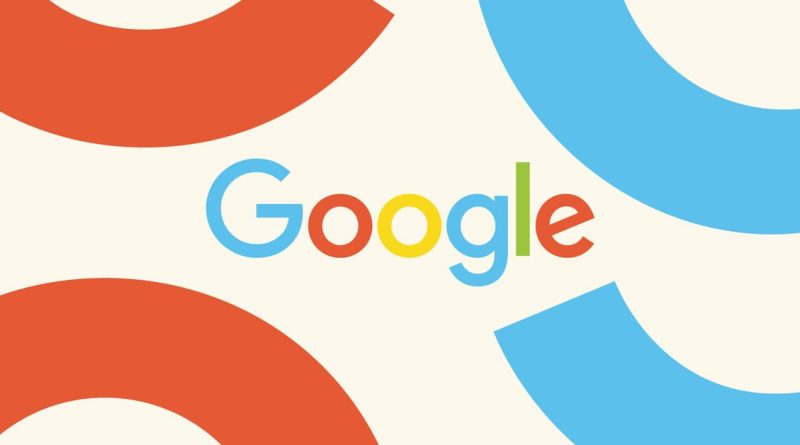Multibillion-dollar Apple deal for default placement looms large in Google antitrust trial
Google has not one but two Department of Justice antitrust trials this year — and the first one, over Google Search, is finally coming to a close. On Thursday, lawyers showed up at the district court in Washington, DC, for the first of two days of closing arguments in the bench trial before Judge Amit Mehta.
This was the first tech anti-monopoly lawsuit the government had filed in two decades since US v. Microsoft. Its outcome directly affects one of the most valuable companies in the world. At this stage, the judge will only determine whether Google is liable for the antitrust charges brought against it. If so, there will be a separate proceeding to determine appropriate remedies. These could be court-ordered constraints on Google’s behavior or something as drastic as breaking up elements of its search business.
Thursday’s arguments focused on claims that Google violated anti-monopoly law — Section 2 of the Sherman Antitrust Act — through its allegedly anticompetitive conduct in the market for general search engines. The DOJ has defined the relevant market as “general search engines” — like Google Search, Bing, and DuckDuckGo, as opposed to specialized search engines that focus on one category, like Yelp. Whether that is in fact the relevant market is up to the judge, as is the question of whether Google is a dominant player in that market.
It’s not enough to be dominant — the DOJ must also show that Google used its dominance to box out rivals and maintain monopoly power. Thursday’s arguments also addressed the question of whether Google’s actions were anticompetitive or merely reasonable business decisions. Friday’s closing arguments will focus on the government’s allegations that Google illegally monopolized the market for search advertising.
The DOJ must also show that Google used its dominance to box out rivals and maintain monopoly power
The government is arguing that Google has maintained its monopoly in the general search market through exclusionary contracts that lock up distribution channels so that rivals can’t become real threats. It alleges that Google’s contracts with phone manufacturers and browser companies for default search engine status make it difficult for rivals to enter the market and reinforce a negative feedback loop that makes it nearly impossible for them to reach scale — particularly devastating since scale is the key to having a quality search engine.
Google says it’s easy to change defaults and that manufacturers want to do deals with it because it’s invested in being the best search engine out there.
Judge Mehta held his cards close to his chest in terms of how he will rule, but his questioning of both the government and Google highlighted where he might see cracks in their cases.
Barriers to entry and business tradeoffs
Mehta seemed pretty on board with the government’s definition of the relevant market as general search engines — the first step in proving a monopoly. He seemed unconvinced that Google could be sufficiently substituted with a search provider for a specific category (like Amazon for shopping) even if they might compete in some areas.
But he seemed to wrestle with whether Google’s business decisions were reasonable versus anticompetitive. For instance, Google Search isn’t as privacy-focused as DuckDuckGo — but isn’t that just a reasonable business decision?
The DOJ’s Kenneth Dintzer said that Google’s decisions at times looked arbitrary. For example, it stored query-related data for 18 months, when most users preferred it be stored for two months or less. Ignoring users “because you feel like it” didn’t look like a business decision, he said.
Mehta also told Dintzer he was “struggling” to reach the conclusion “that Google’s product worsened over the last ten years” specifically due to lack of competition.
The judge also wondered whether the government had effectively proven that Google had erected barriers to entry, pointing to the example of rival search engine Neeva. Though the company eventually failed, Mehta asked why he shouldn’t take Neeva’s entrance to the market in the first place as an indication that the barriers to entry aren’t that high.
Dintzer said that even though Neeva was able to enter the market, it still relied on Microsoft’s Bing to power many of its queries. Furthermore, barriers to distribution — the high difficulty in getting people to use your non-Google search engine, which is likely what killed Neeva — are also barriers to entry. (Neeva, like DuckDuckGo, initially relied on Bing’s API but later created its own search engine from the ground up, at great expense.)
The specter of Neeva reappeared when Mehta addressed questions to Google. In a billion-dollar market like search, “one would think … there would be lots of businesses trying to come in and take that profit away.” But instead, only two new competitors (Neeva and DuckDuckGo) have popped up in the last decade or so. “Doesn’t that tell us everything we need to know?”
Google attorney John Schmidtlein said that massive investments in AI will significantly change how people interact with websites. Mehta conceded that may be true, but “my determination here is about today.”
Google’s multibillion-dollar deals with Apple
Mehta gave Google a particularly tough time over its massive payments to Apple to remain the default search engine on iOS. The trial last year revealed that Google gives Apple 36 percent of search ad revenue from Safari. The New York Times previously reported Google paid Apple about $18 billion in 2021 for the default status.
The judge posited that for another search engine to effectively compete with Google for that default slot, it would not only need to be just as good, it would also need to spend the billions Google pays to be the default — perhaps even more. Mehta noted that there’s just “one example in the last 15 years where somebody has dislodged Google” from a default spot, referring to Yahoo’s short-lived default status on Mozilla’s Firefox browser.
Besides that, Mehta said, “there’s no example of any instance in which any of these providers have seriously considered anyone other than Google.” And in the one area where “Microsoft thought they were making some headway, we heard [Apple executive] Mr. [Eddy] Cue say there’s no price they could have offered us. How is that a competitive marketplace?”
“How is that a competitive marketplace?”
Schmidtlein said Apple had evaluated Bing’s quality against Google’s and ultimately chose Google. But why then, asked Mehta, sign such an expensive agreement with Apple? Schmidtlein said that Apple’s ability to leave the agreement every time it expires is “sufficient to keep Google on its toes and keep Google competing.”
Mehta acknowledged that Apple does not have better alternatives to pick from. Dintzer responded that there is no real competition because Google maintained a monopoly for over a decade.
“Winning agreements lawfully on quality” might dishearten would-be rivals, but that doesn’t mean it was anticompetitive, Schmidtlein argued.
Mehta asked if it was even possible for a nascent competitor to dislodge Google. Yes, said Google’s lawyer, pointing out that nearly 40 percent of the market is not locked up by default contracts.
Mehta countered that it would take a company with massive capital and the ability to create an equally good search engine without user data. “If that’s what it takes for somebody to dislodge Google as the default search engine, wouldn’t the folks that wrote the Sherman Act be concerned about it?”
The trial’s closing arguments will continue on Friday morning.




